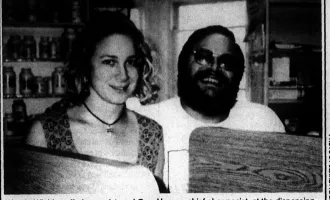
Q&A With Biden COVID Advisor & UCSF Professor, Dr. Eric Goosby, Part 1
Today we present a Synapse limited series — an extensive Q&A with Dr. Eric Goosby, in which we learn about how his prior work with HIV/AIDS translates to the current pandemic; his duties for President Joe Biden’s COVID-19 advisory board; and his thoughts on the future trajectory of the ongoing COVID-19 crisis.
Though 2020 has ended, the coronavirus pandemic, which began over a year ago, is still well underway across the globe.
As countries scramble to keep their case numbers in check, a “new normal” has settled in place, with face masks, “social distancing,” and the shuttering of indoor facilities becoming a standard way of life.
The recent arrival of COVID-19 vaccines offers a glimmer of hope on the horizon, signifying a possible return to pre-pandemic normalcy.
However, the potential issues with vaccine supply shortage and distribution must first be resolved in the interim. Even more concerningly, the emergence of new coronavirus mutants, which may evade vaccine-induced immunity, threatens the possibility of the COVID-19 pandemic ever ending for good.
Synapse recently sat down (virtually) with Dr. Eric Goosby, a professor at UCSF’s School of Medicine, to talk about his thoughts on the coronavirus pandemic.
An expert on infectious diseases, Goosby was recently appointed as one of the thirteen members of President Joe Biden’s COVID-19 Advisory Board.
Fittingly, the position follows a long history of Goosby’s leadership in governmental policy duties — from administering the Ryan White CARE Act in 1991, to serving as Global AIDS coordinator under former President Barack Obama, among other roles.
For Goosby, this has culminated in over 35 years of experience working in the HIV/AIDS sector, and undoubtedly, a wealth of knowledge in the general field of infectious diseases.
Synapse: Can you first describe the process by which you were selected to be part of President Biden’s COVID-19 Advisory Board? How were you appointed to be part of this board, what kinds of communications happened, and how long did they take?
Dr. Goosby: So, I was only in the dialogue when they asked me to do it. I know that I have been in transition team discussions with working groups.
President Biden, when he was preparing to take the government’s reigns, went to great lengths in identifying the issues that he wanted to address in the first hundred days of his administration, as well as what would be the things that continued into the rest of it — you know, the three and a half years remaining. And he knew that he wanted to focus on global health and our relationship with multilaterals — the U.N., World Health Organization, how President Trump had withdrawn from those institutions. He knew that he wanted to reconnect.
So we went through a dialogue on what that reconnection should look like, how WHO should be engaged with us as the largest donor. The United States has a lot of clout, and our withdrawal from WHO and U.N. in general was felt by both institutions negatively.
We also — in addition to giving them the largest dues, money every year — are the largest donor by far, by two to three times the next closest, which are UK, France, and Germany, which are a fraction of what we give to WHO and the U.N. And that’s always been the case.
As a result, for our role in prioritizing issues and implementing responses to problems and issues in the health sector, the U.S. has always played a dominant role. And our interest under President Obama and President Clinton, and to a large degree President Bush, too, was that we’d be in a collegial relationship with allies who use the U.N. as a means through which our foreign policy is expressed. But with global health programs, we see them as different from an economic support program to a country that the U.S. might do in a foreign policy move.
If we engage in diagnosis and treatment services for a population as we do for HIV, TB, and malaria, and have done so for years — over forty years for TB and malaria, and over twenty years for HIV — if we continue to play that role in any given country, a health program is not a program that you can withdraw from because the country doesn’t do what you want, doesn’t vote a particular way in the U.N., or let’s say the extreme, that we’re at war with a country that we had been giving antiretrovirals for HIV to, or anti-tuberculosis meds — you cannot just stop that relationship because of an abandonment of care; [it’s an] ethical issue.
And [it’s about] understanding that and working out our partnership with these countries as we bring resources and money into the country to diagnose and treat disease—in such a way that we don’t use the countries’ clinics and hospitals to do it.
We take people at UCSF, we put them on airplanes, and we fly them 7000 miles, drop them into a usually urban capital of a sub-Saharan African or a Southeast Asian country, rent new space, and stand up new clinics that are not part of the Ministry of Health’s clinic hospital system.
That’s how our development has historically been.
I put a huge effort into changing it to a partnership, a capacity expansion, that insisted on local oversight management monitoring and evaluation.
So the U.S. approach has been missed by all the grantees in the world because European development strategies are donor-dominant priorities, and are you-do-what-we-say-or-we-take-the-money-away relationships.
And the planet with COVID was primed to see that we are interconnected, that we are all in need of services at the same time, and that unless we cooperated, we would confound the ability to deliver the service that was needed. And it’s forced conversations that really historically had not been part of the picture.
So the idea with President Biden and Harris is to use the COVID moment to recalibrate our relationship with donor countries, and move towards a universal health coverage planet.
And the United States can be catalytic in that desire and in that implementation effort to achieve it. That’s the basic spiel.
Next week we ask Dr. Goosby, How is the advisory board working to create clear COVID policies during the transition from the Trump administration?


